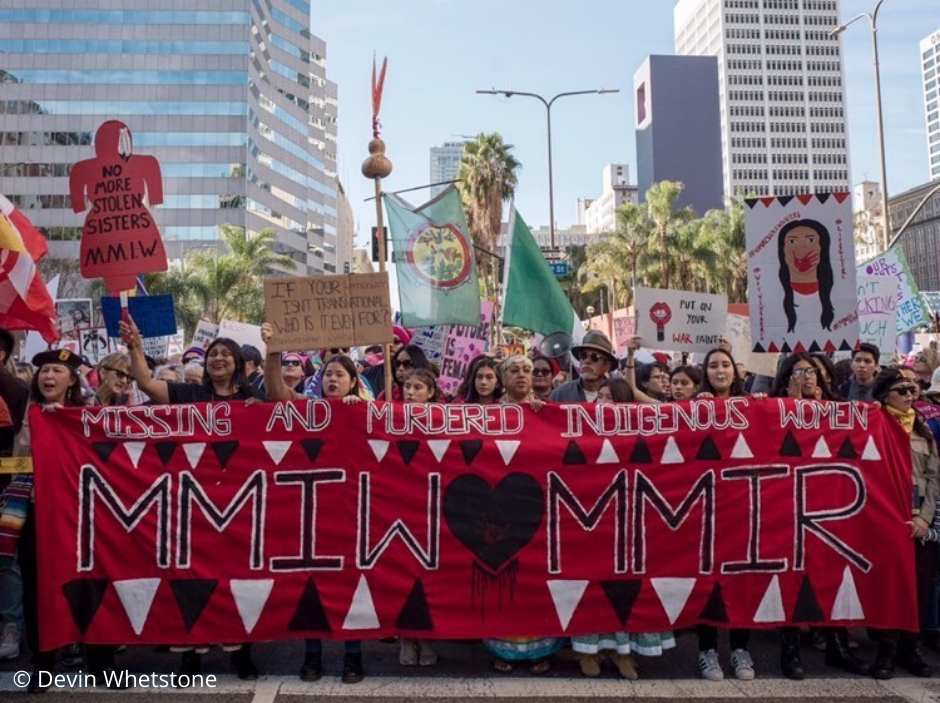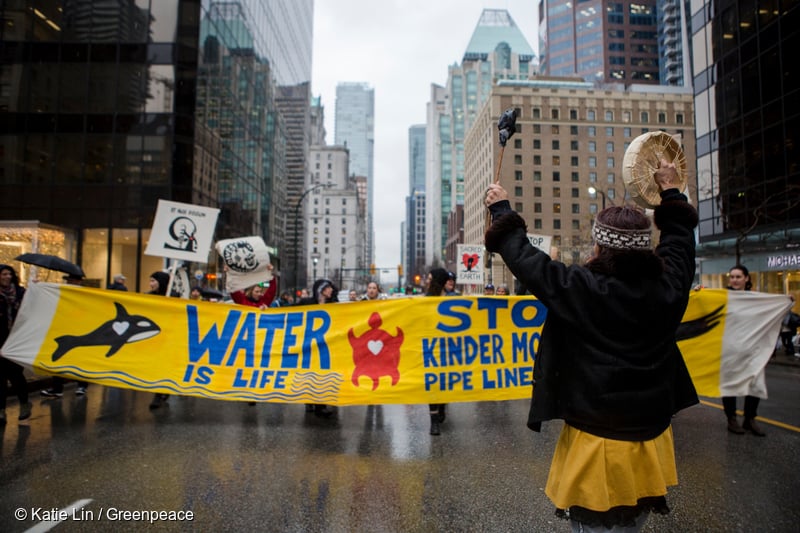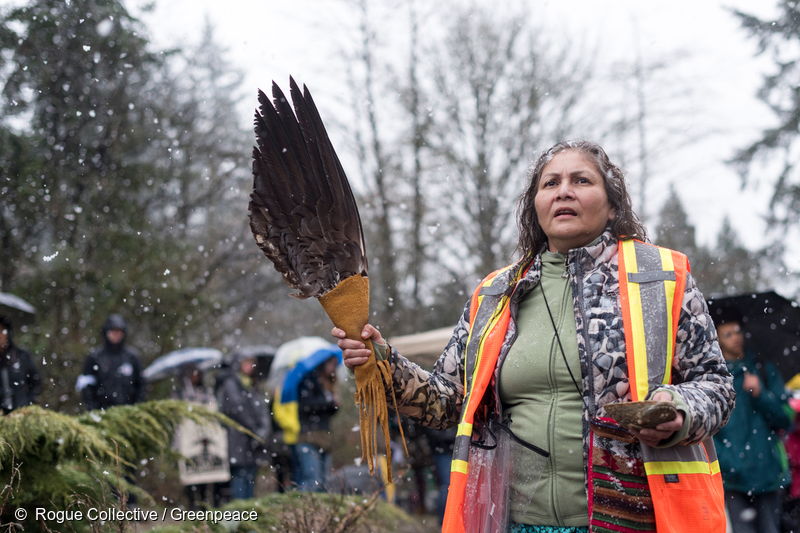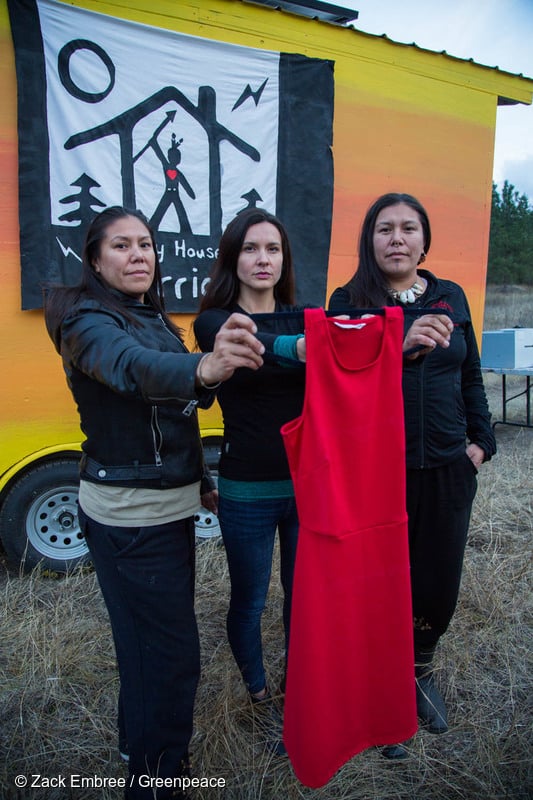“The abuse of women is well known in history, and tells you a lot about what is happening on our earth.” – LaDonna Brave Bull Allard, Standing Rock Sioux


Today, May 5th, is the National Day of Awareness for Missing and Murdered Indigenous Women (MMIW).
There is a disturbing legacy of violence against Indigenous women and children. It began with the colonial conquest of Europeans coming to the “New World” over 500 years ago, it still persists today — and we need to talk about it.

The Tiny House Warriors, a group of Indigenous Secwepemc people from Canada, together with volunteers and supporters, organized a flash mob that took place in downtown Vancouver to protest the Kinder Morgan tar sands oil pipeline.
According to the US Department of Justice, Indigenous women in this country face murder rates that are more than 10 times the national average. Homicide is the third highest cause of death in Indigenous women and girls 10-24 years of age, and the fifth for women between the ages of 25-34. In Canada, Indigenous women are less than 5% of the total female population, but in 2015 they comprised 25% of all murdered women in the nation.
Extractive industries like mining, logging, and fossil fuels are some of the largest perpetuating factors of violence, trafficking, and murder against Indigenous women. They bring an influx of transient male workers to rural areas, often near Reservations, where they live in “man camps.” In North Dakota, the Bakken “oil boom” and resulting arrival of thousands of workers to the area brought with it a surge in rates of violent crime and aggravated assault. The state had at least 125 cases of missing Indigenous women during this time — though in reality, the numbers are likely much higher than that, because data on Indigenous women is often reported incorrectly or not collected at all.

Indigenous protectors station outside Kinder Morgan’s terminal gate in Burnaby, British-Columbia.
The Sovereign Bodies Institute’s MMIW Database is the only comprehensive database chronicling cases of missing and murdered Indigenous women in the US and Canada. The database recorded 529 cases in recent years throughout Montana, North Dakota, South Dakota, and Nebraska — the states which Keystone XL would traverse — as of 2019.

The Tiny House Warriors hold up a red dress — a symbol in remembrance of MMIW.
It’s no secret that Big Oil has a truly horrifying record of human rights violations. Few government resources have been allocated to combat the gruesome epidemic of violence against Indigenous women, girls, and two-spirit people. Meanwhile, fossil fuel companies continue to expand and profit off this violence.
Fossil fuel extraction impacts more than just the economy and the environment. It’s more than land, air, and water. Our lives as Indigenous women are threatened and at risk. We will no longer be collateral for an unjust and exploitative industry.
Environmental degradation, systemic racism, economic inequalities, and social injustices are deeply connected to the same root causes — capitalism and colonialism.
This is why we cannot have climate justice without justice for Missing and Murdered Indigenous Women, Girls, and Two-Spirit People.
We need you to be in solidarity with us for Indigenous people and sovereignty by acting to end the era of fossil fuels.
In the United States alone, air pollution from burning fossil fuels is linked to an estimated 350,000 deaths every year, primarily in Black, Brown, Indigenous, and working-class communities — in addition to fueling the MMIW crisis and perpetuating physical and sexual violence in Indigenous communities. Not a dime of our tax dollars should go towards corporations that poison our communities and wreck our climate. It’s time for our government to divest from systems of exploitation and extraction, like fossil fuels, and begin investing in community health and well-being. Ending fossil fuel subsidies is a vital next step.
Send a message to your Members of Congress to ask them to co-sponsor the End Polluter Welfare Act to put workers and communities first and accelerate the transition to a green and just future.
No more stolen sisters. No more stolen relatives. We demand justice for the missing and murdered — and justice for Mother Earth.
